Idea by
Gaja Mežnarić Osole, Katarina Dekleva, Nuša Jelenec
Re-generacija
Call for ideas 2016
Friendly Enemy
Friendly Enemy
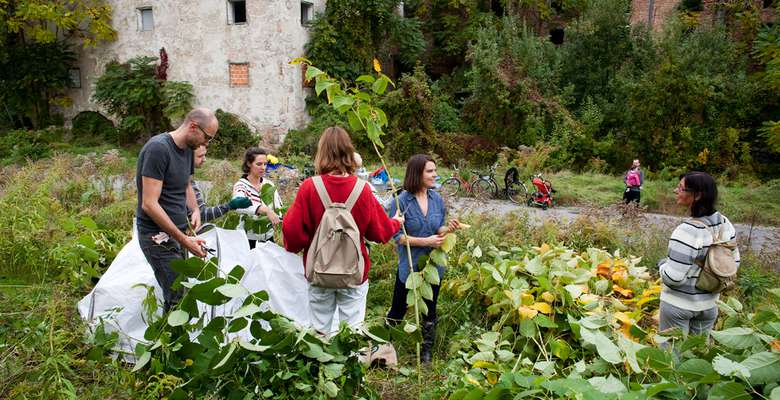
While being concerned about new expansions of privatisation and land enclosures, we are hardly aware how non-human actors lay grounds for new monocultures of domination. Beyond the notion of ownership, borders and separation, these super weeds are changing the ecosystems of built environments. As an overproduction of unbalanced natures, they are causing economic and ecological threats to the local residents all around the globe and evoke spaces of new interspecies encounters.
Focusing on the Japanese knotweed we recognise a potential in creating models and processes that use invasive plants as catalysers for co-creative action. Instead of destroying the unwanted plants with poison, we would like to propose ways - to act and think - how to integrate invasives within our cultural and social environments. Building upon our current findings we propose a co-research of local potentials to design a speculative device for producing Japanese knotweed paper.
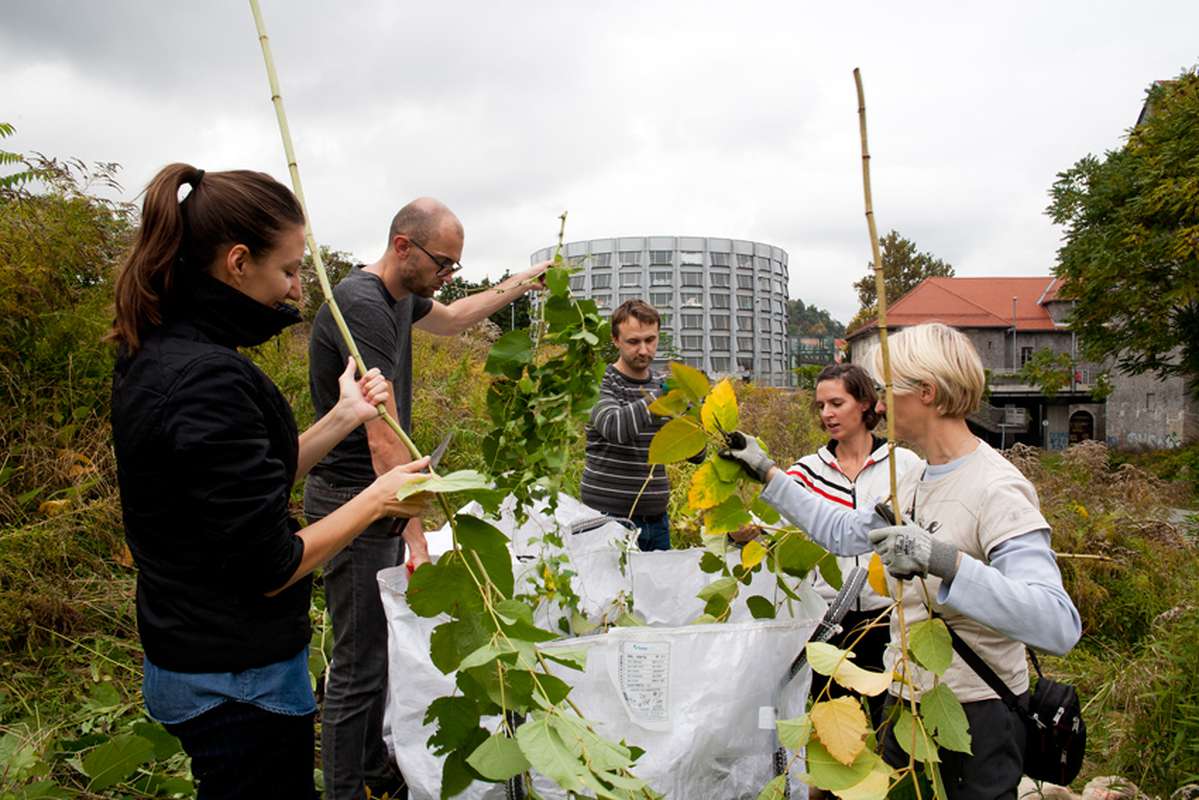
Urban harvest: an example of participatory action
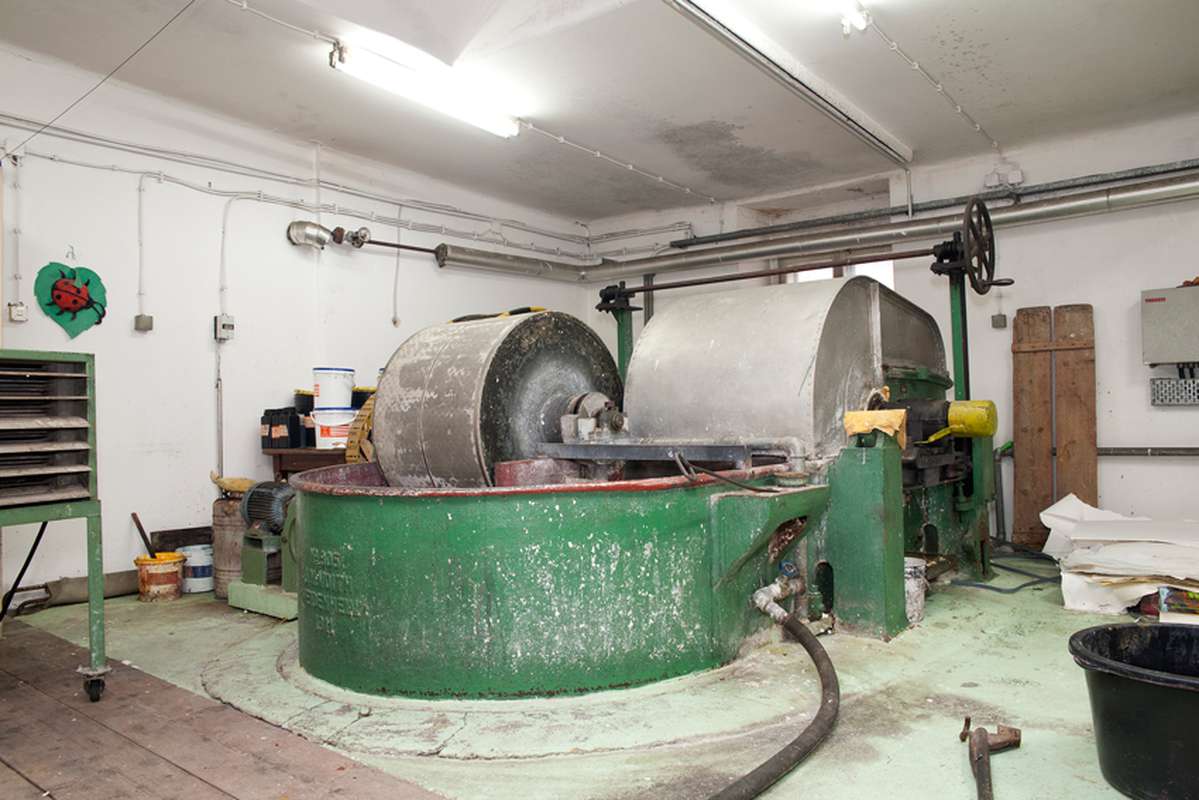
Paper-mill: how could we improve cellulose-making processes for the future?
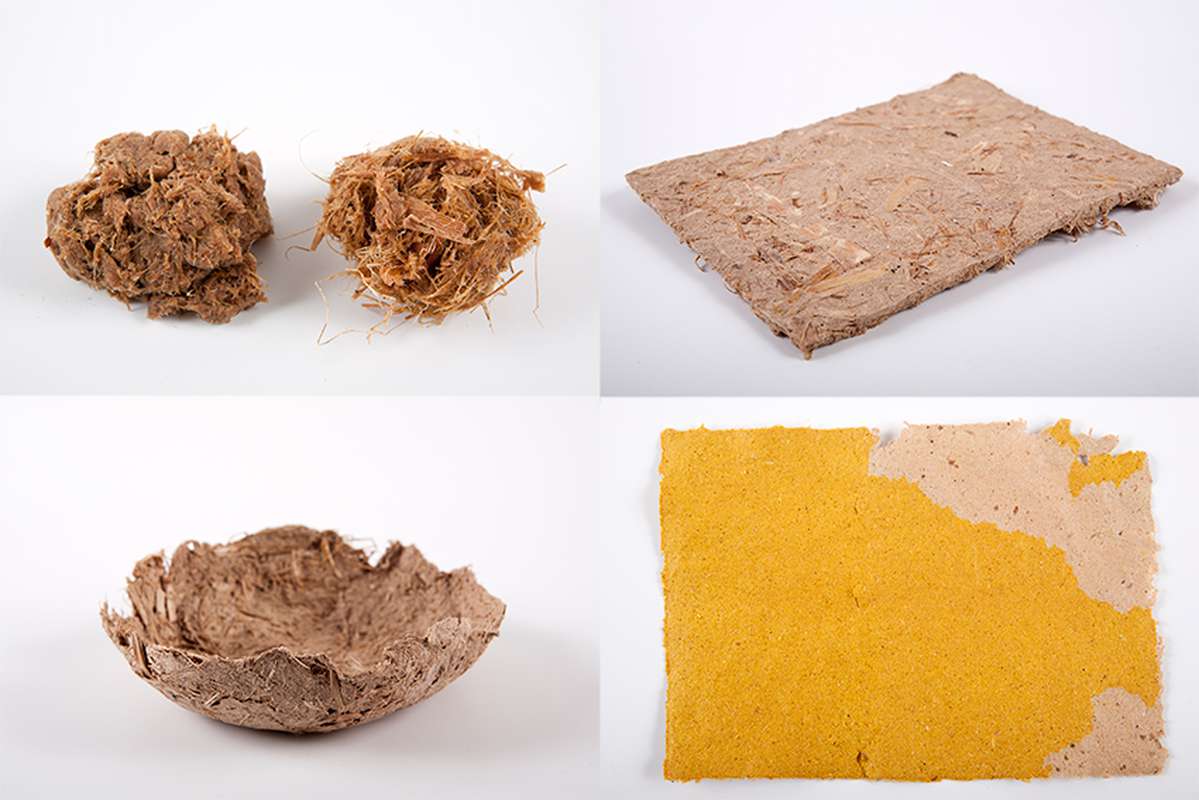
Library: an open collection of our findings
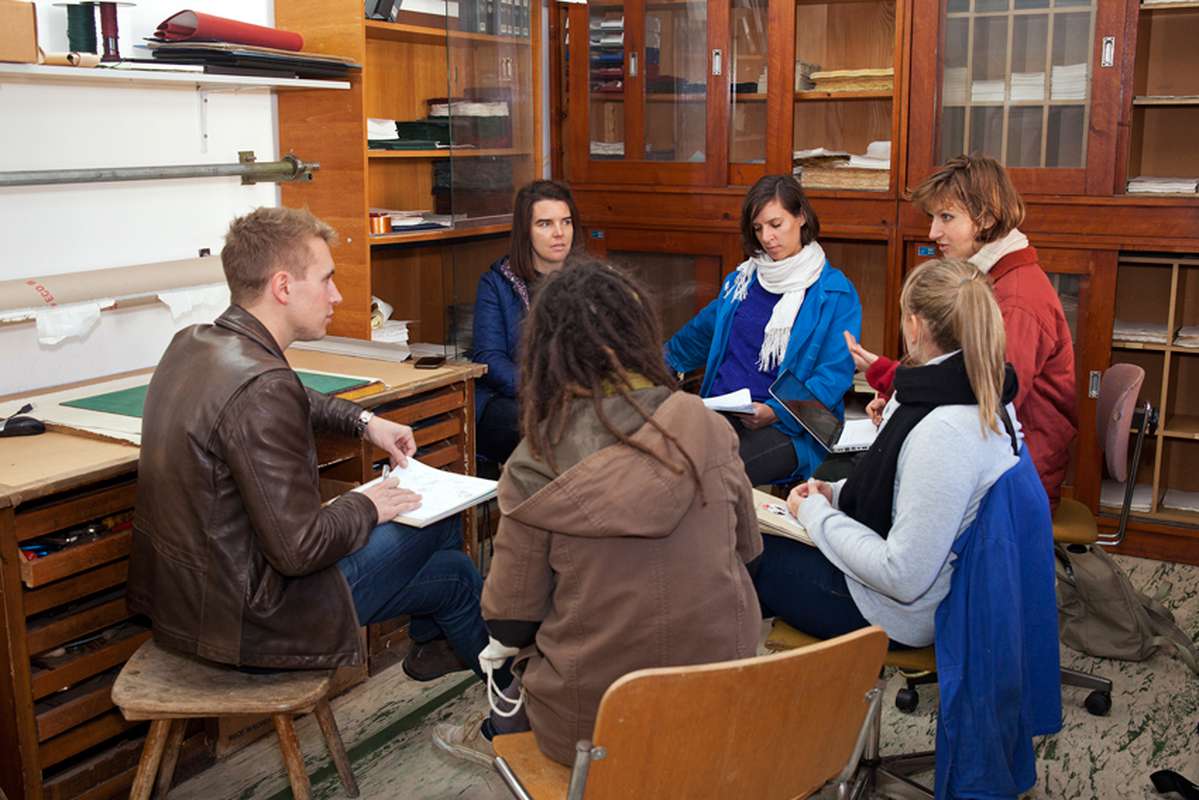
Workshop: local applications co-research
Friendly Enemy
Friendly Enemy

While being concerned about new expansions of privatisation and land enclosures, we are hardly aware how non-human actors lay grounds for new monocultures of domination. Beyond the notion of ownership, borders and separation, these super weeds are changing the ecosystems of built environments. As an overproduction of unbalanced natures, they are causing economic and ecological threats to the local residents all around the globe and evoke spaces of new interspecies encounters.
Focusing on the Japanese knotweed we recognise a potential in creating models and processes that use invasive plants as catalysers for co-creative action. Instead of destroying the unwanted plants with poison, we would like to propose ways - to act and think - how to integrate invasives within our cultural and social environments. Building upon our current findings we propose a co-research of local potentials to design a speculative device for producing Japanese knotweed paper.
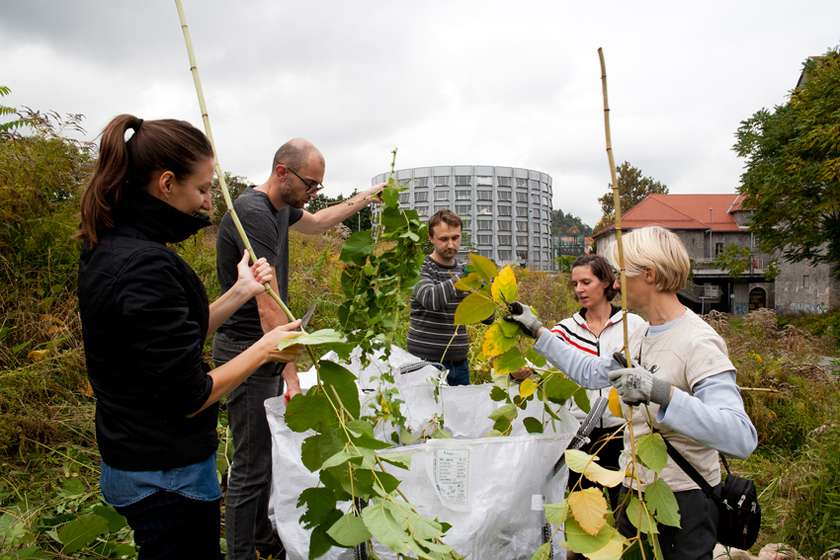
Urban harvest: an example of participatory action
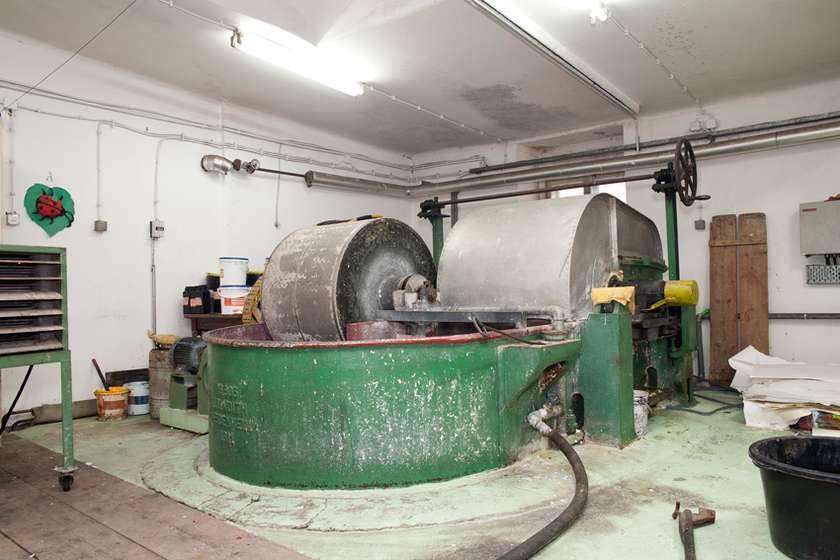
Paper-mill: how could we improve cellulose-making processes for the future?
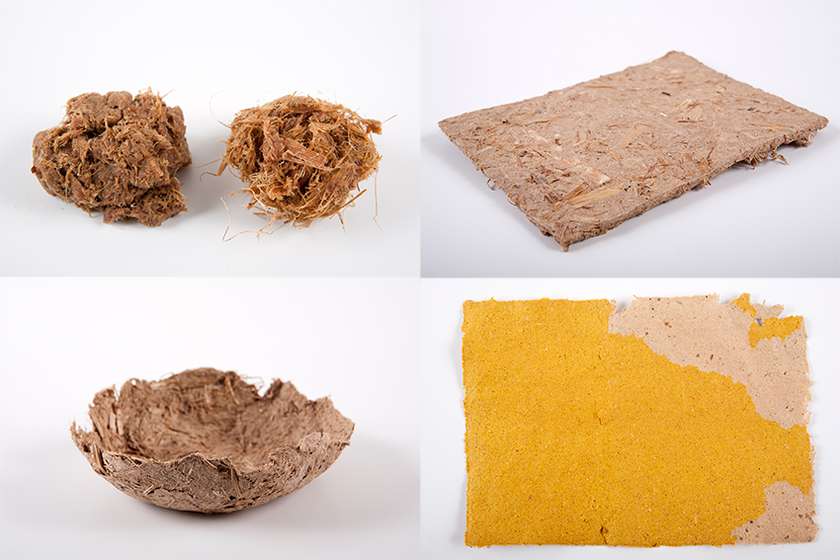
Library: an open collection of our findings
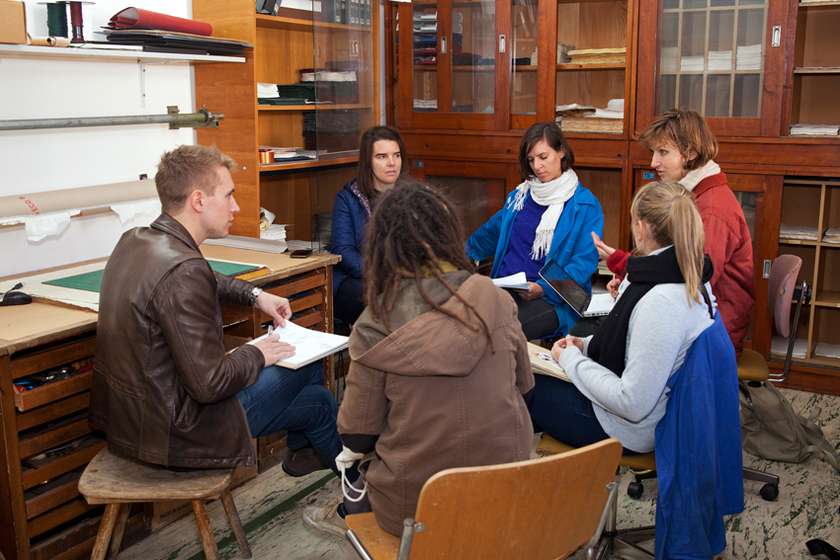
Workshop: local applications co-research